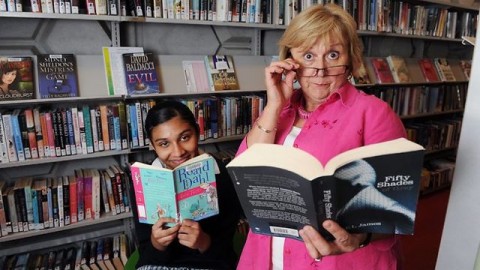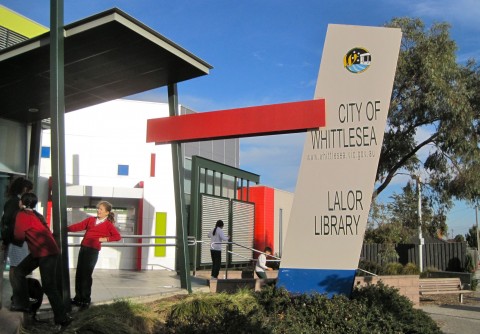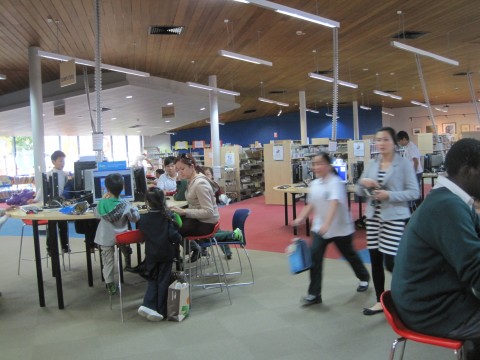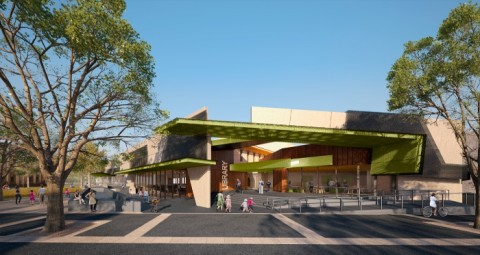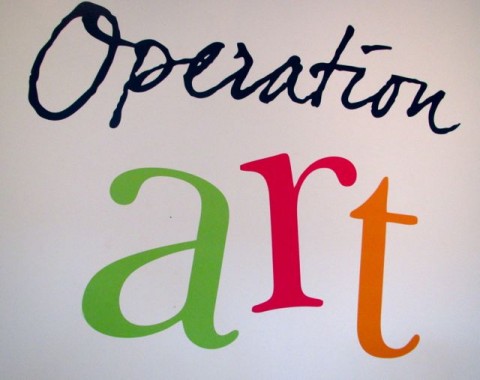The New Nirvana
The economic and social benefits of public libraries have been well researched, but the multiple ways in which they support cultural life and production deserves more attention. Contemporary public libraries perform a complex cultural role. Language and frameworks that can help us describe this explicitly cultural role are needed. Research undertaken by Project Sisu on behalf of the State Library of Victoria and the Public Libraries Victoria Network provides an important starting point. The report will be published in July 2014. It is based of 12 months of field work and theoretical enquiry. Workshops, interviews, focus groups, and a specially designed Roundtable Conversation with cultural commentators, generated rich insights. These were amplified by two online surveys, attracting thousands of responses.
How are public libraries participating in culture-making within their respective communities? While the focus is on Victorian public libraries, the implications are general. Here is a summary.
Libraries foster the culture of the book, and word-based literacy in myriad forms
Storytelling, story time, baby rhyme time, infant singing, reading for all ages, English language classes and groups, literary events and festivals, author talks and creative writing. Libraries curate and manage book collections across a variety of fields and languages. Libraries house and protect books as repositories of knowledge, sources of entertainment and diversion, for research into local and family history, for browsing and to treasure as material cultural objects.
Libraries build and curate collections beyond books
Libraries build and make accessible varied non-book collections including music and DVD collections, databases, photography collections; local history resources and artefacts; digital resources both local and general; visual art collections; musical instrument collections; games and toys.
Libraries broker cultural events and activities
Libraries are actively engaged in initiating and running writers’ festivals, exhibitions, performances, poetry slams, craft and maker activities.
Libraries provide meeting spaces
Libraries provide space and facilities for community and interest groups of all kinds; from knitters to Shakespeare enthusiasts, business and political groups, local history and genealogy groups.
Libraries provide performance and exhibition spaces
Libraries nurture cultural expression by providing spaces for exhibitions, including the works of local, regional and international artists; they exhibit their own art collections; host music recitals, storytelling events, theatre and acrobatics; produce and display visual, fibre and word-based arts.
Libraries provide outreach services
Libraries are looking for new ways to connect with both new and established community groups, and to actively respond to ideas from the community. The evidence shows that they are energetically partnering with other agencies like Neighbourhood Houses, multicultural
groups and other cultural institutions to deliver a range of events and activities.
Libraries have extensive networks and share knowledge across regions, states and countries
Library networks are in themselves a cultural resource on local, regional and global levels. Libraries demonstrate a collaborative way of working. The Library Corporation model in Victoria cultivates a spirit of professional cooperation and the sharing of ideas, and the PLVN allows knowledge to be circulated and added to.
Libraries stimulate creativity
Libraries and their staffs are encouraging people to develop an idea, to realise a creative agenda, and to think about new possibilities. Whether a business or artistic project, a presentation or a performance, a book or a hobby – budding entrepreneurs, writers, musicians and craftspeople credit the library as a creative incubator.
Libraries promote learning and play for all ages
For students, refugees, new arrivals, scholars, local historians and many others, libraries are a vital cultural link. They promote learning for everyone; access to resources, courses, opportunities and equipment; and the accidental learning that comes from sharing public spaces.
Libraries provide a community anchor in tough times
Research respondents remarked on the importance of libraries as a vital place of connection during bush fires, floods, times of emergency, temporary hardship, disadvantage, homelessness and alienation.
Libraries nourish relationships
Many libraries and librarians are sensitive and responsive to clients’ expressed and unexpressed needs, and to rapid changes in demand. They provide a relational service, something beyond the transactional. They often know their patrons and know how to work with their needs and aspirations.
Libraries cultivate civic skills and values
Libraries are engaged in building skills in the sharing of public resources, in the accommodation of difference and in the moderation of selfishness and indifference (especially in teen hubs).
Libraries feel contemporary
Many library spaces and buildings convey a feeling of ‘Now’, of alert relevance. Some have emerged from collaborative design processes.
They are often the most ambitious public building in rural/regional towns, providing uplift, colour, civic pride and inspiration.
Libraries often feel spatially free and open
Many libraries are facilitating spatial interaction and therefore the skills needed to navigate and share contemporary public spaces: from kid’s spaces to teen hubs, to creative production spaces, to craft corners, to piano playing, to jigsaw puzzles, to scrabble boards, to recording studios and to classes in using tablets for seniors.
Libraries feel like safe spaces
Respondents said that libraries provide a welcome sense of both containment and freedom; the sense of being alone in the presence of
others. They provide the kind of safe space which encourages the sense of play and ‘holding’ associated with creative expression.
Libraries are perceived as sanctuaries
Public libraries in Victoria were frequently described as sacred spaces, poetic spaces, a place apart from material struggle, a place for concentration, a quiet space in a world made noisy and distracted. They are frequently seen as places of solace and connection.
As workshop and online participants so eloquently put it:
The public library is…..quiet, clever, curious…imperative, indispensable, vital…a safe place that demands nothing but offers everything….ideas fill the air…it’s delicate, a thing of extraordinary beauty.
Anticipating the opening of the new Bendigo Library, a resident of Woodend sums up: “It will be the new Nirvana.”
Project Sisu: Annie Talvé and Dr Sally Gray
Client: State Library of Victoria, Melbourne, Australia
Duration: February 2013 to July 2014
